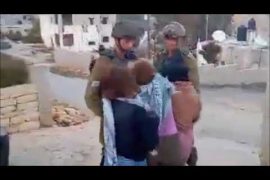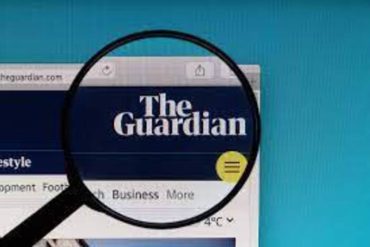An almost throwaway paragraph in an article about Terry Waite’s recent visit to Lebanon dated December 9th on the BBC News website informs us that:
“Hezbollah is a powerful political and military Shia Muslim organisation in Lebanon. Regarded by some in the West as a terrorist organisation, it is currently part of Lebanon’s government.” 
And that, dear BBC audience member, is your lot as far as ‘factual’ information goes – apart from a reference in the report’s strap-line to “the militant group Hezbollah”.
Of course that vague description carefully avoids any mention of Hizballah’s role as an Iranian proxy (complete with funding and arms supplies), Hizballah’s indictment for the murder of Rafik Hariri and its oppression of the Lebanese population, Hizballah’s execution of numerous terror attacks both in Lebanon and abroad, Hizballah’s criminal activity within the world of drug smuggling and money laundering and Hizballah’s concrete support for Bashar al Assad’s mass slaughter of the Syrian population.
But perhaps the most obviously misleading part of that paragraph is the phrase “regarded by some in the West as a terrorist organization”, suggesting that such a view is a geographically specific fringe opinion, held by nobody worth naming.
 In fact, Hizballah in its entirety is proscribed by the governments of Canada, the United States, Israel and the Netherlands. It is also proscribed by the decidedly non-Western governments of Egypt and Bahrain. Australia and the United Kingdom proscribe what they term as Hizballah’s “military wing”, although such a distinction is actually at odds with the facts.
In fact, Hizballah in its entirety is proscribed by the governments of Canada, the United States, Israel and the Netherlands. It is also proscribed by the decidedly non-Western governments of Egypt and Bahrain. Australia and the United Kingdom proscribe what they term as Hizballah’s “military wing”, although such a distinction is actually at odds with the facts.
A particularly energetic reader might perhaps go out of his or her way to search for further information in a BBC profile of Hizballah; no such link is given in the article itself. In that case, a search would turn up a no less anodyne result which has not been updated in two and a half years.
The BBC’s Editorial Guidelines claim that the organisation’s policy of refraining from the use of the word ‘terrorism’ is a method of avoiding the pitfalls of “value judgements”, thus safeguarding its reputation for objectivity.
“Terrorism is a difficult and emotive subject with significant political overtones and care is required in the use of language that carries value judgements. We try to avoid the use of the term “terrorist” without attribution. When we do use the term we should strive to do so with consistency in the stories we report across all our services and in a way that does not undermine our reputation for objectivity and accuracy.
The word “terrorist” itself can be a barrier rather than an aid to understanding. We should convey to our audience the full consequences of the act by describing what happened. We should use words which specifically describe the perpetrator such as “bomber”, “attacker”, “gunman”, “kidnapper”, “insurgent”, and “militant”. We should not adopt other people’s language as our own; our responsibility is to remain objective and report in ways that enable our audiences to make their own assessments about who is doing what to whom. “
However, the airbrushing of terrorism by means of the omission of full details of an organisation’s activities and the failure to adequately describe its ideologies, represents just as much of a value judgement and is no less detrimental to the BBC’s reputation for impartiality, accuracy and objectivity.



